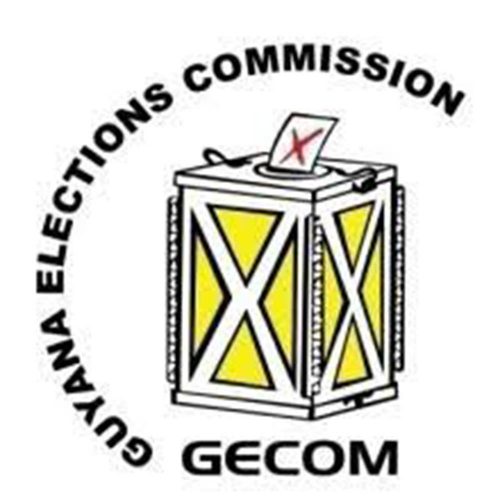Describing it as “unmeritorious,” “much ado about nothing” and consuming valuable judicial time, acting Chief Justice Roxane George SC yesterday threw out the action brought by A Partnership for National Unity (APNU) Chief Scrutineer Carol Smith-Joseph; whose contention it was that the official list of electors (OLE) could not be used to compile the voters list for the Local Government Elections (LGE) which had previously been slated for March 13th.
In fact, the judge said that in accordance with law and precedent, it is the OLE which forms the basis for compiling the voters list for the LGE. In dismissing the application, the court imposed costs against Smith-Joseph (the Applicant) which she has to pay to the Guyana Election Commission (GECOM) (the Respondent).

The main issue which needed to be resolved Chief Justice George said, was whether the list of electors should or could have been prepared from the OLE pursuant to Sections 5 (6) or from the National Register of Registrants (NRR), pursuant to Sections 11 (1) of the Local Authorities (Elections) Act.
She began by noting that the primary qualification to vote in local government elections is tied to the process of registration of electors for national elections and she said that section 5 (6) has to be read in that context.
Further, she said that the fact that section 5(5) provides that the OLE is prepared to choose a president and members of the national assembly and regional democratic councils “does not preclude the use of the OLE as the base list for local government elections.”
As its self-explanatory nomenclature states she said, “it is the official list of electors.”
This had been the position argued by GECOM through its attorney Kurt Da Silva.
The Chief Justice said that there is also nothing in the evidence to support; nor has Smith-Joseph herself contended that the OLE is so flawed that would permit a court to find that it is of no use.
On this point Justice George said that there is unsubstantiated information provided for one constituency of a local authority area which she said “could hardly lead to a conclusion that the OLE is flawed.”
She said, too, that the update in the electoral system to cater for constituencies in local authority areas does not mean that the OLE cannot be used as a source for the preparation of registers of voters from the local authority areas and the constituencies therein.
The Judge said it appeared from the Applicant’s contention that she wanted the OLE to be discarded as a basis for the preparation of the list of electors for the local government elections.
“Section 5(6) cannot be read in isolation,” the Court, however, stressed; as it said the Applicant seemed to want to do; while going on to note that Section 11(1) also cannot be read in isolation.
Against this background she said that Section 11 (1) as originally framed, with reference to the OLE for the 1992 elections also, provided for the extraction of the preliminary list of voters for local government elections from the OLE.
This she said, provides precedent for the list to be used for LGE, being extracted from the OLE.
Again, she stressed that Section 5 (6) needed to be read in that context, noting that that section re-enacted the original Section 11 (1), thus making it applicable to all local government elections.
Section 5 (6) thus empowers GECOM she said, to utilize the OLE as a source for the list of electors for LGE
The Chief Justice said she agreed with the arguments submitted by GECOM that given Section 5 (6), the register of voters for local government elections which are the official list of electors for these elections, may be extracted from the OLE as prepared for the national, regional and general elections.
The Court said it found no evidence to support Smith-Joseph’s contention that the process employed to prepare a register of voters for use in the local government election deprived electors and/or voters of an opportunity to object to persons on the register of voters as contemplated by the Local Authorities (Elections).
The Judge said that the Applicant has not disclosed whether anyone or even she herself utilized the provisions for claims and objections as outlined therein, and that in doing so GECOM is found wanting.
The Chief Justice said it appeared that relying on “unsubstantiated and inadmissible evidence,” the Applicant was inviting the Court to impugn the OLE that was utilized for the 2020 national and regional elections.
“The invitation is unequivocally rejected,” Justice George said; adding that in her view, the application “was much ado about nothing.”
She said that there was nothing in the evidence to show that that the register of voters for the previously scheduled March 13th, LGE was not credible in anyway.
“Litigants must appreciate that courts rely on evidence, not unsubstantiated opinions or conjecture,” the Chief Justice stressed.
“In my view this has turned out to be a most unmeritorious application that has taken up a lot of judicial time,” the judge said; while expressing that the only positive that can be gleaned from the case is that it allows the court to urge that “parliament must endeavour to harmonize the elections laws and to resist piecemeal amendments that range over many pieces of legislation.”
In dismissing the case, the court imposed costs in the sum of $250,000 to be borne by Smith-Joseph which she has to pay to GECOM on or before June 30th.
The local government elections had been initially scheduled for March 13th, but has been pushed back to June 12th. Smith-Joseph has another application pending before the Chief Justice where she is challenging GECOM’s demarcation of electoral boundaries for those polls.
Justice George heard arguments in that matter yesterday and is expected to deliver her ruling today.
Background
Smith-Joseph had sought to argue through her attorney Roysdale Forde SC, that GECOM, in its preparation of the voters list did not act in accordance with the law and the Constitution.
“The process employed by the Commission to prepare a Register of Voters for use at the next Local Government Elections has deprived the Electors and or voters of the opportunity to object to persons on the Register of Voters in the manner provided for in and contemplated by Local Authorities (Elections) Act Cap. 28:03,” she had argued.
She contended further that the electoral body had failed to comply with Sections 12, 13, 19, 20, 22 and 23 of the Local Government Elections Act. This, she had said in her application could not be the grounds on which GECOM issues a final Voters List in accordance with the Local Government Elections Act, that is to say, a List which was subjected to the statutory processes set out in the aforementioned Sections and most importantly and significantly a Claims and Objections period.






